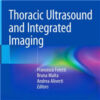Clinically Significant Pleural Effusion in ICU
journals.lww.comClinically significant pleural effusion (PLEFF)—defined by a depth greater than or equal to 2 cm in a drainable location on thoracic ultrasound together with a potential adverse effect on patient progress—was detected in 3.1% of patients admitted to intensive care, and one third of them were managed with early drainage.
In selected patients without contraindications, early drainage resulted in improved oxygenation, diagnostic accuracy, and treatment optimization, without apparent SAEs compared with expectant management.
Our results support further evaluation by adequately powered randomized controlled trials of when, and in whom, clinically significant PLEFF should be drained.
Primary outcome was the change in Pao2:Fio2 (mm Hg) ratio from baseline to 24 hours.
Changes in diagnosis and treatment based on pleural fluid analysis and pleural effusion related serious adverse events between those who underwent either drainage within 24 hours or expectant management were compared.
Of the 7,342 patients screened, 226 patients (3.1%) with 300 pleural effusions were enrolled.

















